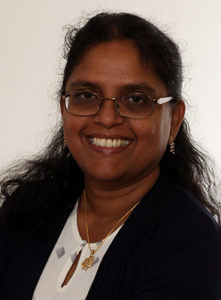Surrogacy in India: Bioethics, Human Rights and Agency
Dr. Sheela Saravanan
Full article available in PDF here
Abstract
At the juncture when India has banned commercial, it was an appropriate time to examine what is the situation of commercial surrogacy and its transition to altruism in India. This was a follow-up study, from the previous study conducted in 2009-2010. I interviewed 45 surrogate mothers (SMs), who had completed 63 births and given away 90 babies since 2007 to 2017. All the surrogate mothers had completed surrogacy when I interviewed them.
Some of my findings reiterated my previous findings. Some serious violations of human rights and medical ethics continues to take place; women are detained in surrogate homes against their wishes and desires, sex selective abortions are performed, the restrictions imposed on women in the surrogate homes are inhuman, none of them are given a copy of their contract, the manner in which the children have been relinquished is also inhuman as some are shown the face of the children, some are not, some are expected to bond with the babies, most are eventually alienated. Women are selected into surrogacy based on their class, age, skin colour, religion, caste and the payment varied according to these categories. Women are doing all this for money. Most of the households are poor, some are very poor and the remaining are at subsistence level, doing this to gain a higher order in their present class status. Couples from abroad and non-resident Indians formed the bulk of the clients. Almost all surrogate mothers (93%) think the surrogacy process is a form of slavery and most (67%) felt the process was similar to a form of sexual exploitation of their reproductive organs. Most didn’t repeat surrogacy again and those very poor who did repeat surrogacy were the only ones who could build/buy a house. Financially, it was only the very poor without any agricultural land or house ownership who have repeated surrogacy more than once who could buy or build a house. The very poor one timer surrogate mothers have not been able to buy a house, some slipped back into abject poverty. It is only the few who were already at a subsistence level who have been able to take advantage of this extra money to enhance their economic situation. Most women did surrogacy for building/buying a house. It is the housing, health and education situation that is the root cause of surrogacy practices in India. It is important that the public and private educational, health and housing sector in India is focused towards health and education for all and also to provide low-cost housing.
The surrogate mothers described the embryo transfer period as intrusive, painful, clamped down, harsh and dreadful. Pregnancy was over-medicalized with injections, medicines, ultrasounds in-utero selective abortions, cervical cerclage for twins and filled with experience of illness and depression. During delivery they experienced; fear of death, complications, fear of caesarean section, pain, neglect by commissioning parents and cruel ways in which the child(ren) is separated from them. Overall the physical and emotional impact of surrogacy has been immense on their lives. Many are suffering from an emotional setback, physically they have become weak after the surrogacy treatment, multiple embryo transfer trials, miscarriages, uterus removal and do not have the capacity to work as they used to earlier and many have developed some kinds of morbidities and have experienced near-death situations during surrogacies. Some surrogacy and egg donor deaths have been hushed up and not been reported. Not only the surrogate mothers, but also their children carry the sorrow of giving away the children born through surrogacy. The relationship with the commissioning parents as expressed by all surrogate mothers, was nice only until the baby was in their womb. After the delivery, most commissioning parents turned into inconsiderate, selfish and even cruel beings. From a global perspective, India is a typical case of how rampant violations of human and child rights, women’s bodily integrity and medical ethics thrived on global structural inequalities. In the garb of reproductive liberty, the surrogacy practice promotes deeply embedded pronatalist, patriarch, racial, ageist, casteist, sexist and ableist hegemony. This raises globally relevant questions of geneticisation, alienation of the gestational role, human and child rights violations, trafficking and reproductive injustice. Surrogacy hence needs to be included as a form of universal human rights violation.

Dr. Sheela Saravanan
Dr. Sheela Saravanan has two Master`s degrees in Geography and Development Studies from Mumbai and Pune Universities, India, respectively. Since 1998, her academic focus has been on women and health in Asia and Europe. She has specialized on reproductive health since her PhD on birthing practices in India from the School of Public Health, Queensland University of Technology, Brisbane, Australia. Her post-doctoral work in German Universities was on maternal and child health, selective abortions, reproductive technologies; surrogacy and prenatal screening. Conceptually, she has applied `authoritative knowledge, intersectionality, reproductive justice and transnational feminism` in her research on reproductive health. Author of a book on commercial surrogacy in India, she has been invited as a keynote speaker on this topic on several prestigious forums, including the United Nations.
